When looking for a Used Small Excavator for Sale, making an informed decision is crucial to avoid costly repairs and operational inefficiencies. Evaluating a used machine can be overwhelming, but by focusing on the right areas, you can ensure a smart investment that suits your needs.
To evaluate a Used Small Excavator for Sale, inspect the engine, hydraulic system, undercarriage, and operational controls. Understanding the machine’s hours, maintenance history, and overall wear can guide your purchase decision. A comprehensive inspection can save you time, money, and future headaches.
Let’s dive deeper into the steps you should take to thoroughly assess the condition of a Used Small Excavator for Sale.
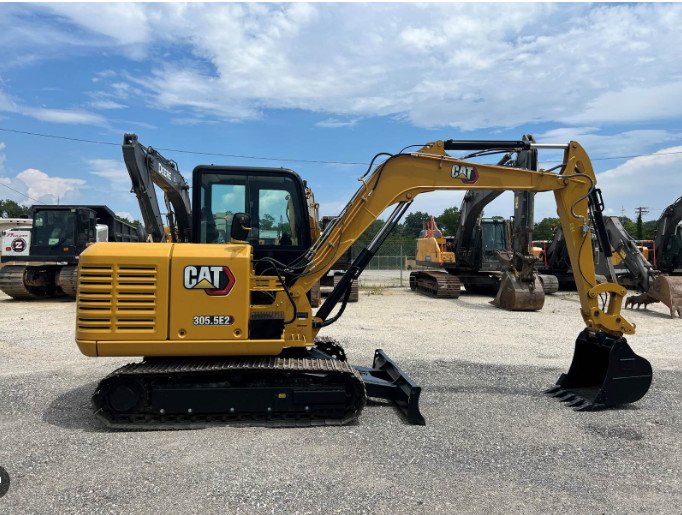
1,What Are the Key Areas to Inspect on a Used Small Excavator For Sale?
When assessing a Used Small Excavator for Sale, you need to focus on a few critical components. These parts determine the longevity and efficiency of the machine. Specifically, the engine, hydraulic system, undercarriage, and the operator’s cabin are essential areas to check closely.
Key areas to inspect on a Used Small Excavator for Sale include the engine’s condition, the hydraulic system’s functionality, the undercarriage’s wear, and the overall state of the operator’s cabin. Don’t forget to check the operation of the controls and the electrical system as well.
- Engine: The engine is the heart of the mini-excavator. Look for any weird sounds, leaks and how the engine performs. Listen for any unusual noises like a guttural moan or grinding noise. Check the engine out thoroughly for any oil leaks. Get the seller to start the machine and let it run to listen to the engine. You want it to spin up to the max RPM fast. A slow start or making rattling noises is not a good sign. Good luck. Walk away from the engine if you hear a knock. It’s going to cost you money.
- Hydraulic System: Check the machine out for hydraulic leaks. Hydraulic oil and hydraulic oil smells are telltale signs of a leak. Make sure you’ve got enough hydraulic fluid in the machine. The last thing you want to do is run it out of hydraulic fluid, burn up the pump, and cost yourself more than ten grand in repairs. The hydraulic power runs the excavator’s arm, bucket, and anything else the operator wants to move. Make sure you open up the house and look for hydraulic leaks and check hydraulic fluid levels.
- Undercarriage: The undercarriage is critical on a mini-excavator. The worse the undercarriage on a mini-excavator, the worse the machine’s stability and power to move. Look for any cracked or wore-out tracks. Look at the sprockets on each side to make sure the teeth aren’t worn or broke off. If they are hurt, you’ve got a problem on your hands. Look at each side of a track under the mini-excavator. Make sure there are no dents, dings, or bends on the tracks, as the tracks support the weight of the mini-excavator.
- Operator’s Cabin: A comfortable and safe cabin is vital for the operator’s efficiency. Check the seat, control levers, and visibility from the cabin. Ensure that the air conditioning, heating, and any other essential controls are working properly.
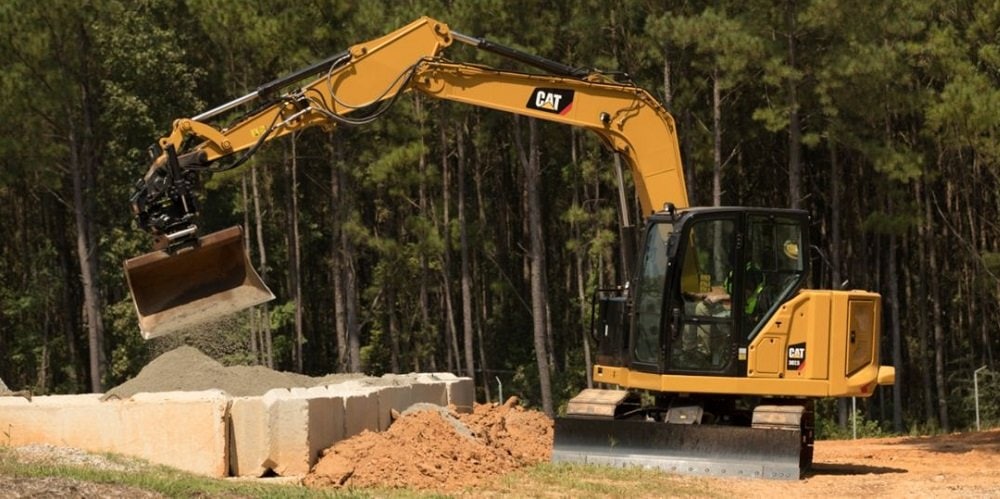
2,How to Check the Engine and Hydraulic System on a Used Small Excavator For Sale ?
The engine and hydraulic system are two of the most critical parts of a Used Small Excavator for Sale. These components affect the machine’s power, lifting capacity, and operational efficiency. A thorough inspection can help you avoid costly repairs in the future.
Start by inspecting the engine’s performance. Look for any visible oil leaks or unusual exhaust smoke. Next, check the hydraulic system for leaks, and ensure that the fluid is at the proper level and free of contaminants.
- Engine Inspection: When inspecting the engine, listen carefully for any strange noises, such as knocking or grinding. Look for oil or coolant leaks around the engine block and check the oil level. Low oil or coolant levels may indicate internal issues, which could be expensive to repair.
- Hydraulic System Inspection: The hydraulic system runs the boom, arm, and bucket of the mini-excavator. To check the hydraulic system for leaks, look at the hydraulic hoses, cylinders, and pump for any drips or leaks. Check hydraulic fluid levels to see if they are in spec or low and need more fluid added. Turn the machine on and test all the controls to make sure they operate smoothly. You do not want hydraulic pressure that’s low or not consistent because that’s a sign the machine is fixing to fail. Also, listen for any strange noises associated with the hydraulic system.

3,What to Look for When Inspecting the Undercarriage of a Used Small Excavator?
The undercarriage is one of the most vital parts to inspect when buying a Used Small Excavator for Sale. A well-maintained undercarriage ensures the stability and mobility of the machine. Pay special attention to wear and tear, as the cost to repair or replace parts can be significant.
Look for visible signs of wear, such as broken or worn-out tracks, damaged rollers, and cracks in the undercarriage frame. The more worn the undercarriage is, the higher the risk of additional repairs or replacement costs down the line.
- Track Condition: Also, check the tracks on the used small excavator for sale for any signs of damage, cracked pads, or if the pads are wore slap out. If the track is worn out, the mini-excavator will have trouble tracking and moving the machine up hills or moving it through loose material like mud or soft dirt. Other adjustments need to be made to track tension, but check the tracks. Make sure they are in good shape. Also, watch for tracks that have been stretched and are sagging.
- Roller and Sprocket Condition: The rollers and sprockets are the wheels that run the tracks. worn out rollers and sprockets can cause the Excavator to not track properly and cause more fuel to burn as it tries to overcome the sprockets and rollers that won’t spin freely. Make sure that all the Bushings they do pivot on are in good shape. You want the Bushings to have some wear on them, but if they’re worn slap-out, then you have a problem on your hands.
- Frame Integrity: Check for any cracks, dents, or signs the frame of the Used Small Excavator for Sale has been bent. The frame is what supports the weight of the machine. The frame is the structure that gives the boom leverage to dig. If the frame has been twisted, bent, or had any damage, the machine is junk. Walk away from it because the frame that supports everything has been compromised.
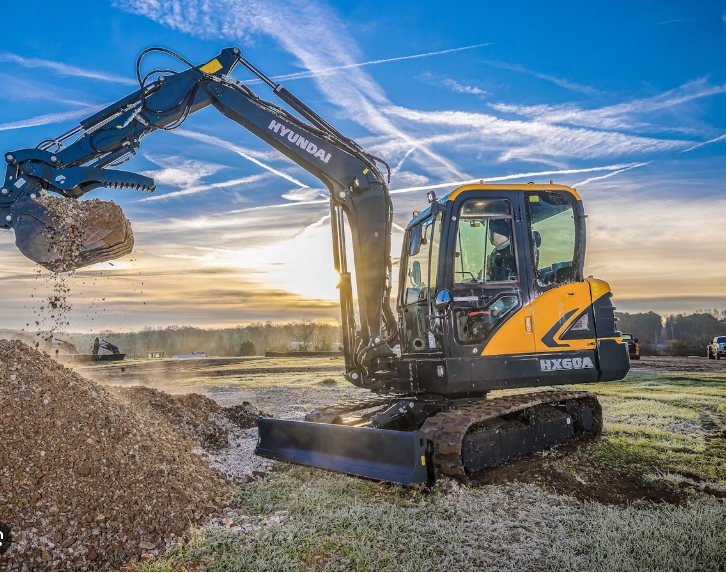
4,Why Is a Visual Inspection Essential for a Used Small Excavator For Sale?
A thorough visual inspection of a Used Small Excavator for Sale can reveal a lot about its condition. This type of inspection helps you identify potential issues that might not be immediately noticeable during the initial test or operational inspection.
A visual inspection allows you to detect external problems such as rust, cracks, oil leaks, and general wear. It’s an essential part of evaluating the overall health of a used machine, and it can save you from purchasing a machine that requires extensive repairs.
- Rust and Corrosion: Look for rust and corrosion on the body, engine, and used small excavator for sale undercarriage. If you see axle housings, housings, frames, and booms all rusted up, you know the machine hasn’t been taken care of. If the body has rust, you know the machine’s been left in the weather to rot. Rusted up machines will have structural problems as well as higher repair bills in the future. Pay close attention to the amount of rust on the machine’s body, engine, and undercarriage.
- Oil Leaks: Check for oil leaks on any used small excavator for sale you are considering to purchase. Look beneath the front of the engine and bell housing tranny area. Just look around to see if you see any oil leaks or stains where the excavator was parked. Look at the hydraulic system hoses to see if there are oil stains around the hydraulic hoses. Oil leaks are a sign of problems in the engine or the hydraulic system. You wouldn’t necessarily reject the machine for one small oil leak, but you should pay attention to it.
A constant drip means money to repair or at least clean up. It can also indicate a worn out seal, gasket, or cylinder that needs repair or replacement
- Cracks and Dents: Check for any cracks, dents, or any other damage on the body or frame of the mini-excavator. Any large cracks, tears, or dents can mean the machine has been in a collision. They could also mean the machine has been abused and not maintained correctly. Structural damage like cracks or if the machine is not plumb and square is bad news. If you have to cut and re-weld the machine, the cost of the repair will be higher than the machine’s repurchase price.
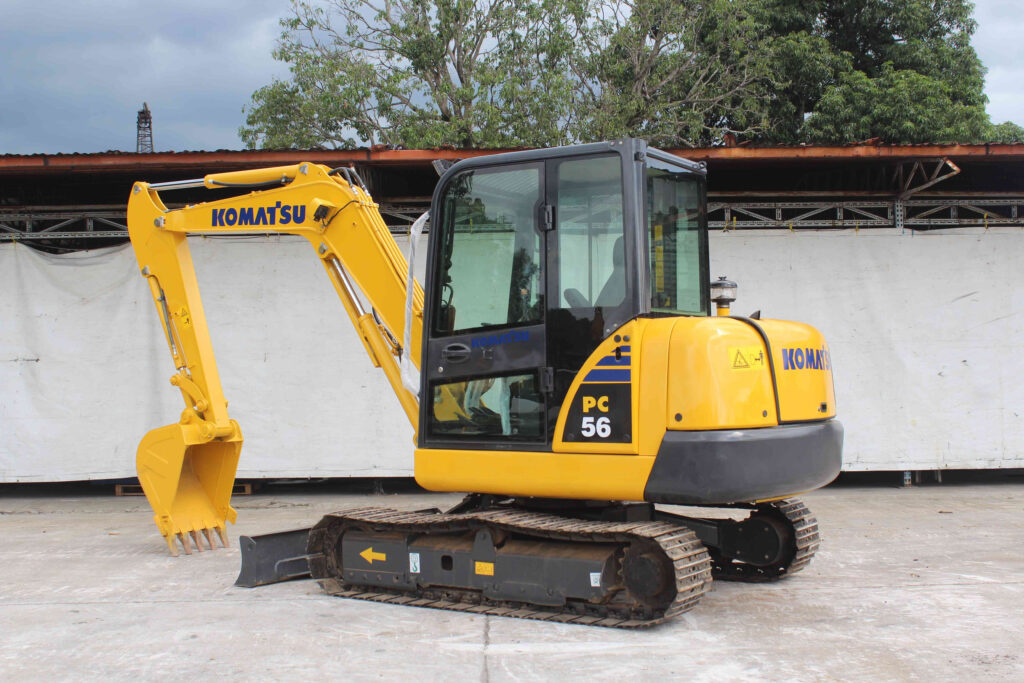
5,How Do Maintenance Costs Affect the Evaluation of a Used Excavator?
Maintenance costs should be a key consideration when evaluating a Used Small Excavator for Sale. Machines that have been well-maintained can offer reliable performance at a lower cost over time, while those with poor maintenance histories may come with higher ongoing expenses.
A comprehensive maintenance history allows you to assess how much work the machine has required and whether any major repairs have been made. Machines with consistent maintenance records are typically a safer investment.
- Maintenance History:Ask the seller for the maintenance records on that used mini excavator. Find out how well the machine has been taken care of. If they’ve done regular routine maintenance, oil changes, filter replacements, and checked the hydraulic system oil, then you’re good to go. They’ve probably taken good care of the machine, and you feel confident investing the money in it.
- Cost of Repairs:If the machine has a history of frequent breakdowns or requires frequent repairs, there’s a good chance there are more repairs coming in the future. If you have to make a major repair, such as an engine overhaul or a hydraulic system replacement, the costs can be very high. Remember that when you are looking at the overall price of the machine.
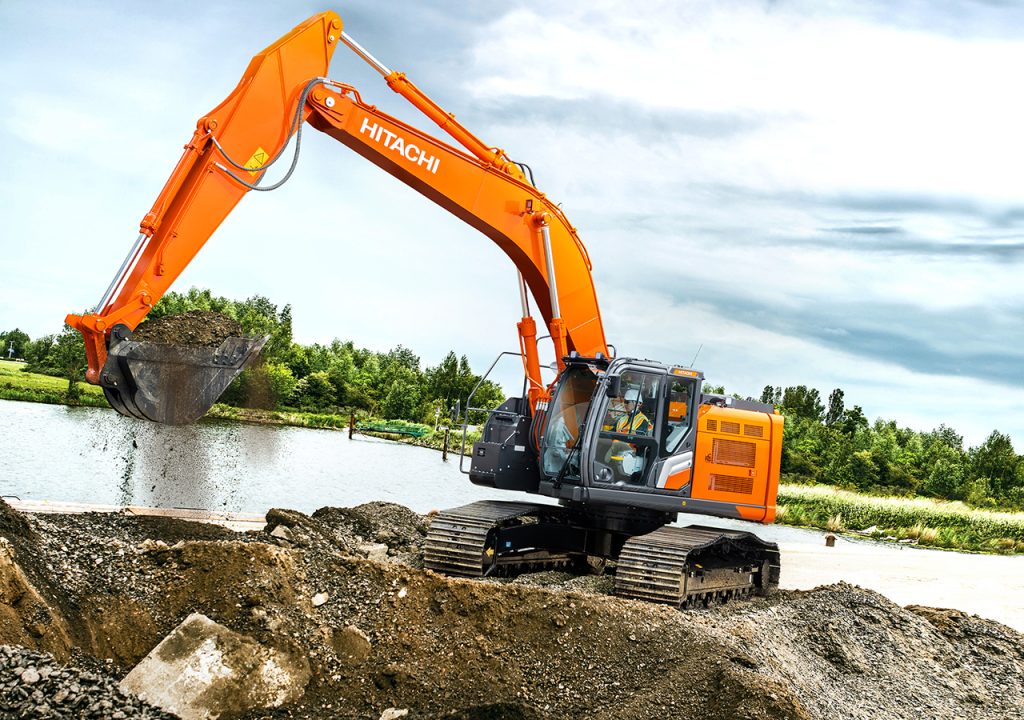
6,What Is the Life Expectancy of a Mini Excavator?
When evaluating a Used Small Excavator for Sale, understanding the expected lifespan of the machine is crucial. Knowing how long the excavator is likely to last helps you determine whether it’s worth the investment.
Typically, a mini excavator can last anywhere from 5,000 to 10,000 operating hours. The lifespan depends on factors such as maintenance, usage, and the operating conditions of the machine.
- Brand Impact: The brand of mini excavator can have an impact on how long you can expect the machine to last. Brands like CAT and Komatsu tend to last longer than knock-off brands or one-off implements that are built cheaply. Do your homework on the brand’s reputation and parts availability. That way, you can feel comfortable investing in the used small excavator for sale.
- Maintenance Impact: Proper maintenance can significantly extend the life of a mini excavator. Machines that have been regularly serviced, with oil changes, filters replaced, and hydraulic fluid checked, will likely last longer than those with irregular or neglected maintenance.
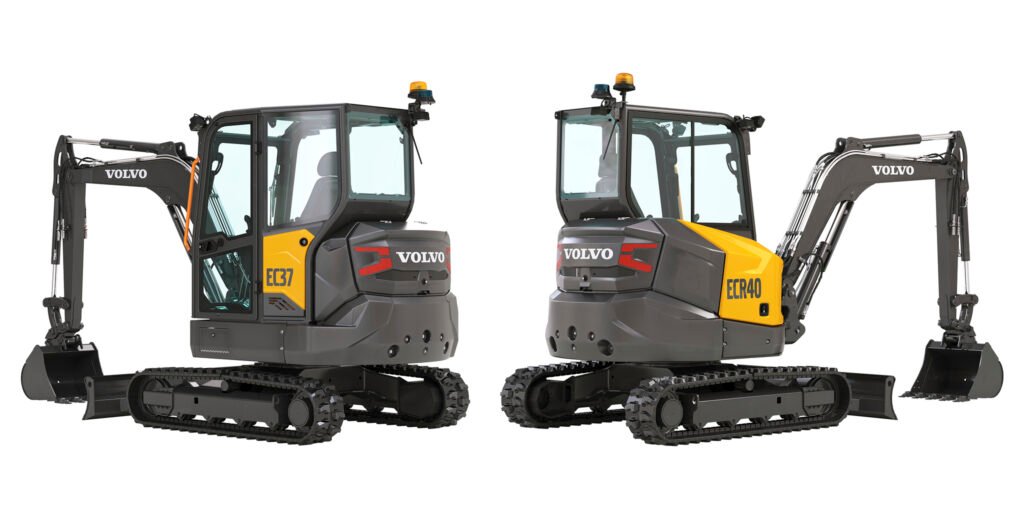
7,What Is Considered High Hours for a Used Small Excavator For Sale?
When you’re evaluating a used small excavator for sale, the number of hours that the machine has been in operation is relevant. Yes, a mini excavator with high hours is likely to be more worn and the more likely to break down, but it’s not always a bad thing – especially if the machine has been well maintained.
For most mini excavators, over 5,000 hours of operation is considered high. Machines with more than 7,000 or 8,000 hours may require more immediate attention, particularly in terms of engine and hydraulic system maintenance.
- Impact of High Hours: High hours don’t necessarily mean the machine is about to croak. It means it’s been heavily used. There’s a pretty good chance that will require maintenance sooner than a low-hour machine. It also may rack up more expensive maintenance costs over a given period of time than that low-hour machine.
- Inspection Considerations: If you’re looking at a higher-hour machine, pay special attention to the engine, hydraulics, and undercarriage. A properly maintained machine can run for many more hours. It’s like a car. If people change the oil, do the maintenance, and take care of it, a car will run for many miles longer than a car that hasn’t been taken care of.
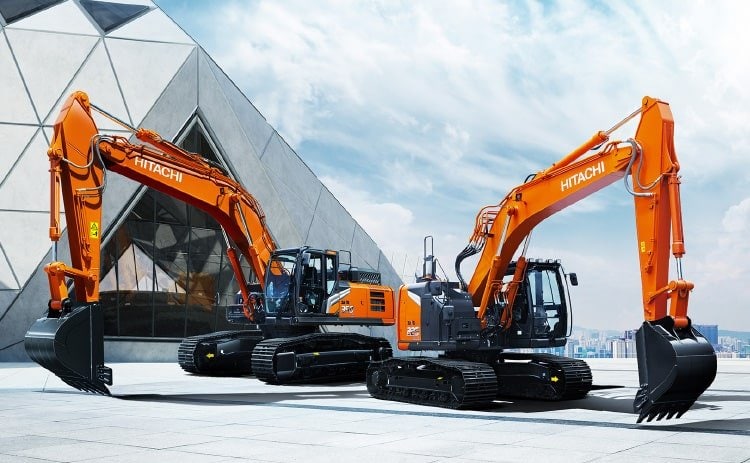
8,Are Mini Excavators Hard to Use?
Mini excavators are designed to be more compact and user-friendly compared to larger models, but they still require some skill to operate effectively. If you’re considering a Used Small Excavator for Sale, it’s important to assess whether the machine is easy to use and whether it meets your operator’s skill level.
Used small excavator for sale are generally easy to use, with user-friendly controls and compact designs that make them ideal for tight spaces. However, operator experience still plays a role in achieving optimal performance.
- User-Friendly Controls: Used small excavator for sale come equipped with simple controls that are easy for beginners to master. However, the comfort and accessibility of these controls can vary from model to model. Ensure the machine you choose has ergonomically designed levers and intuitive operation.
- Training and Skill Level: While operating a mini excavator is straightforward, you need to train the person who runs it. Make sure that person is familiar with all the features of the mini excavator. The last thing you want is for someone not to know how to use your new piece of equipment. You don’t want to invest the money in it and not get a return on it.
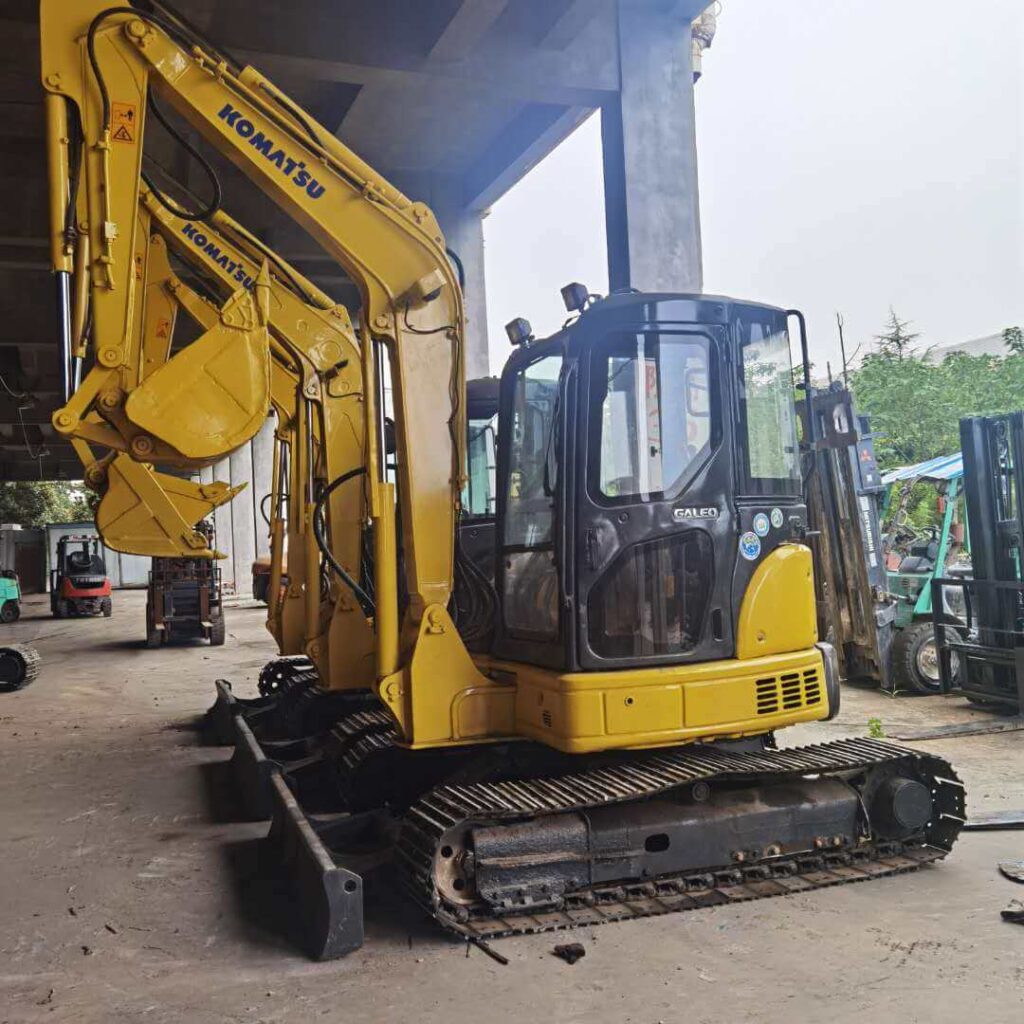
9,Do Mini Excavators Tip Over?
Used small excavator for sale are pretty stable. They are designed to work in tight places like in between houses for foundation work. That being said they can tip over like anything else used in construction.
While mini excavators are designed to be stable, they can tip over if operated on uneven ground or if overloading the bucket. Always operate on stable terrain to avoid accidents.
- Preventing Tip-Overs: The easiest way to keep a used small excavator for sale from tipping over is to not let it tip over. Make sure the ground where you’re operating is level, check its stable, be aware not to overload the bucket and keep whatever you’re digging level. Remember to train your operators to run the machines to reduce the risk of accidents.
- Safety Features: Modern Used small excavator for sale are equipped with stability control systems that help prevent tipping. These systems include advanced sensors and stabilizers that keep the machine balanced during operation.
Summary
Checking the engine, hydraulic system, undercarriage, and its overall condition will reveal any issues that can benefit from repair or eliminate the excavator from your list. Checking the maintenance history, hours of use, and how easy it is to operate will help you determine the value of the machine to your company. You also could contact with us for more information.

